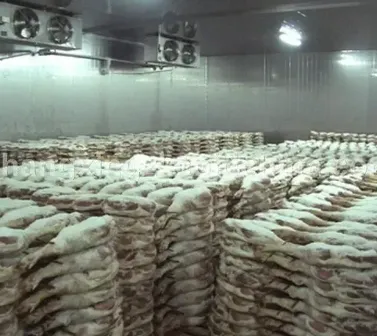The Professional Application of Flange
Flange is an important component that connects pipelines, valves, pump bodies, and other equipment, widely used in various industries such as mechanical manufacturing, chemical engineering, power, and petroleum. Its main function is to provide a convenient connection method to achieve sealing and support in pipeline systems. The professional application of flanges is not only reflected in their design and material selection, but also involves their performance under different working conditions.

In the chemical industry, the application of flame is particularly important
Chemical processes typically require operation in high temperature, high pressure, or corrosive environments, thus placing extremely high demands on the materials and design of pipe floor flanges. Common flange materials include stainless steel, carbon steel, and alloy materials, which have good corrosion resistance and high temperature resistance. According to specific working conditions, the structural design of the flange will also vary to ensure that it will not leak or be damaged when subjected to pressure. In addition, the disassembly and replacement of flanges are particularly important in the maintenance and repair of chemical equipment. Therefore, adopting standardized flange design can greatly simplify this process and improve efficiency.
In the power industry, flange also plays an irreplaceable role
Electrical equipment, such as boilers, cooling systems, and generators, often require high-strength connectors to withstand complex working environments. Plain flange provides reliable mechanical connections in such devices, ensuring that all parts can work effectively together. For example, in boiler systems, flanges are used to connect pipelines and valves, and their sealing directly affects the safety and efficiency of the system. Therefore, the power industry has strict requirements for the quality and performance of flanges, which must undergo rigorous testing and certification procedures before they can be put into use.
The application of flange in the oil and gas industry cannot be ignored
In this industry, hose flange is not only used for pipeline connections, but is also often used as a key component for pressure testing and leak detection. The transportation process of oil and natural gas involves extremely high pressure and complex temperature changes, so the design of flanges must take into account these extreme working conditions to ensure the safety and stability of the entire transportation system. Meanwhile, with the increasing awareness of environmental protection, the sealing technology of hydrant flange is also constantly improving to reduce the impact of leaks on the environment.
Overall, as a widely used connecting component in multiple fields, the professional application of flanges not only relies on material and structural design, but is also closely related to the requirements of working conditions. Whether in the chemical, power, or petroleum industries, the selection and application of flanges must strictly follow relevant standards and specifications to ensure the safety and reliability of equipment. With the continuous advancement of technology, the materials and manufacturing processes of flanges will also evolve to meet increasingly complex industrial demands. In the future, the professional application of flanges will continue to play an important role, providing guarantees for the safe and efficient operation of various industries.
-
The Key to Fluid Control: Exploring the Advantages of Ball Valves in Industrial SystemsUudisedJul.09,2025
-
The Versatile World of 1, 2, and 3 Piece Ball ValvesUudisedJul.09,2025
-
Stainless Steel Ball Valves: The Ideal Choice for Efficient Flow ControlUudisedJul.09,2025
-
Optimizing Fluid Control with Ball Float ValvesUudisedJul.09,2025
-
Manual Gate Valves: Essential for Control and EfficiencyUudisedJul.09,2025
-
Everything You Need to Know About Butterfly ValvesUudisedJul.09,2025
-
The Versatility of Wafer Type Butterfly ValvesUudisedJul.08,2025




